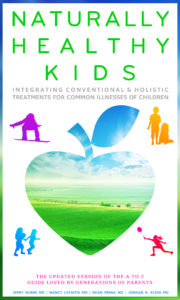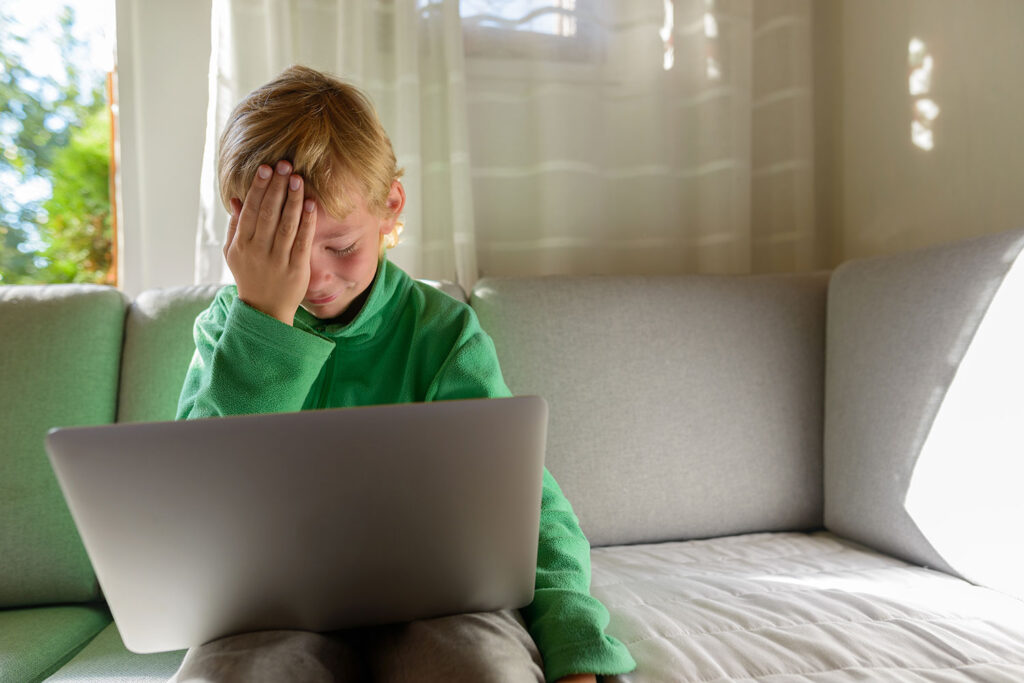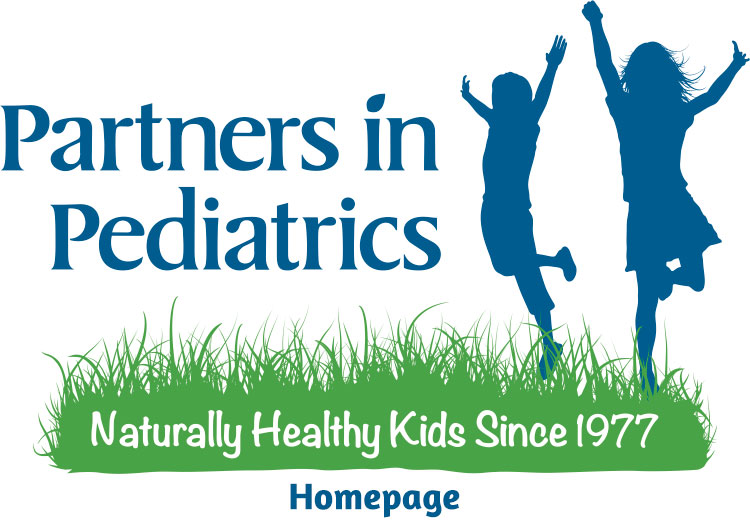The past 13 months have been immeasurably stressful for so many of us. From COVID to political stress to the general grind of endless Zoom calls and an overhanging feeling of insecurity, things have been tough.
Sadly, kids in Denver and elsewhere are not immune to this stress. In fact, they may be feeling it even more than we are, in some instances. As integrative pediatricians, we have seen a deeply saddening uptick in children suffering from mental health issues during the pandemic. Many children in Colorado are experiencing heightened depression, anxiety, stress and even the horrors of suicidal ideation. With our holistic approach to integrative pediatric care, we care a great deal about your child’s mental health, and have a variety of at-home, integrative, holistic treatments to help soothe your child’s stress. Conventional medicine is great – and we definitely practice it – but sometimes an integrative medicine treatment does the trick.
 Many of you are familiar with our handbook, Naturally Healthy Kids (available now on Amazon!). Written by several of our founders, it details hundreds of integrative treatments for all sorts of childhood ailments, ranging from stress to tummy aches to fevers and pretty much anything else you can imagine.
Many of you are familiar with our handbook, Naturally Healthy Kids (available now on Amazon!). Written by several of our founders, it details hundreds of integrative treatments for all sorts of childhood ailments, ranging from stress to tummy aches to fevers and pretty much anything else you can imagine.
Today, we’re sharing some Naturally Healthy Kids suggestions for at-home, integrative therapies and simple parenting techniques for managing children’s stress.
Stress: Its Impact On Your Child’s Health
It is no secret that stress has been named as the culprit in many disease processes affecting adults. Numerous studies confirm that children of any age can also be negatively affected by stress. Sleep disorders, eating disorders and obesity, chronic headaches and stomachaches, difficulty with concentration, behavior problems and depression are just a few of the ailments we see in children who experience chronic stress. In addition, there is strong evidence that the stressed person’s body fights off illness less effectively than the body of a person who is in “emotional balance”. Prolonged stress can lead to tension headaches, increased stomach acid secretion and abdominal pain, moodiness and depression.

Home Care For Your Child’s Stress
The primary goal of home care is to help you take steps to identify, treat and prevent the discomfort and imbalance caused by stress-related illness. Here are some effective steps you can take as a parent to help your stressed child.
- Be tuned in to, accessible to, and involved in your children’s day-to-day lives. Get to know what their day is like, who their friends are, what they think of their teachers, and their performance in the classroom (virtual or otherwise) and all activities. All parents are busy, but remember, your children look to you for guidance and acceptance.
- Keep a diary of symptoms and encourage an older child to do so. Record episodes of “pain”, including other details such as date, time of day, location of the pain, activity, what made it better or worse, and associated symptoms. Often, you will both become successful “detectives” as you note a pattern.
- Treat the pain. Just because a symptom is the result of stress, do not assume the pain is “imaginary”. The stressed nervous system can produce very “real” discomfort. For headache and back pain, consider ibuprofen or acetaminophen. For stomachaches, consider antacids such as Maalox, Mylanta or Tums at meals and/or at bedtime, depending upon the timing of the complaint.
- Sit down with your child to discuss stress in your lives. Depending on his or her age, you may try different approaches:
Younger children: “What makes you sad?” “What would you wish for?” “Let’s draw a picture about your day. Can you tell me about it?”
Older children: Describe how stress makes you feel sometimes. Give examples of stresses you had at that age. Let them know it’s not only OK to talk about it, but that doing so can lead to a great sense of relief once the stress is “out in the open”.
Teens: As above to some extent, but resist the temptation to solve their problems for them. This age group needs not only practice in decision-making and creating strategies for handling conflicts, they also need the confidence gained when parents help support and validate those solutions. Above all, be an empathetic, attentive listener.
- Regular exercise is a terrific stress reducer. If your child doesn’t get daily physical activity, create a plan together and get him or her moving. Even a period of as little as 20 minutes of exercise can lead to the release of endorphins that promote a feeling of well-being. Quite often the addition of an after-dinner walk with a parent will open up the opportunity for conversation about the events of the day.
- Limit the known stressors you identify in your child’s life. Be sure you treat each family member with respect. Marital discord certainly has a great impact on children’s stress. Don’t place your child in situations he or she is not yet emotionally ready to handle (for example, coming home to an empty house, staying home alone, dating at an early age). Limit exposure to news, social media, violent and/or inappropriate television, videos and movies.
- Become involved in your child’s life. Meet and/or speak with your child’s teachers on a regular basis. Maybe try sitting in on or volunteering for (if you can) your child’s virtual or in-person class to get a taste of what your child’s day is like and how peer interaction plays out there. Be the parent who welcomes your child’s friends to your home, the parent who carpools (to the extent you are doing these things during the pandemic). You’ll gain valuable insight into what stresses kids are experiencing today.
- Minimize your distractions when your child speaks with you. Don’t let your cell phone, car radio, TV, etc. ruin an opportunity for your child to speak up.
- Occasionally, stress can be tougher to handle. That’s when the involvement of an experienced child therapist can be of immense help. If your health care provider suspects counseling may be helpful, they can work with you to refer your child/family to an appropriate therapist.

Integrated Therapies
Aromatherapy
- Essential oils, lavender, mandarin, and Roman chamomile will help decrease stress and promote relaxation. These oils may be added to bathwater or dabbed onto “pulse points” beneath the angle of the jaw or the temples of the forehead.
Herbal Remedies
- Valerian root may offer some help in easing a child to sleep.
Bach Flower Remedies
- Rescue Remedy may be of use if your child is uncomfortable from stress or anxiety. You may use 2 drops every 10 minutes to every few hours to calm restlessness as needed.
- A lukewarm bath with 10 drops of Rescue Remedy added to the bathwater is often very effective for relieving stress in general.
- Bach Flower Remedies are a group of homeopathic remedies and can be specifically tailored to your child’s individual needs. For further guidance, please consult with your health care provider.
Massage
- Teach your child with a headache to massage his or her forehead by using his or her fingertips, making firm, circular motions. Let them know that they have the power and skill to do this wherever they are, and that they should do so at the FIRST sign of a headache (this will not only help relieve pain by relaxing the muscles of the forehead, but the time spent at that moment will help your child initiate a much-needed period of relaxation).
- Massage your child’s feet or back. You may use the oils described above to enhance relaxation.
Nutrition
- Add a multivitamin to help assure that daily requirements are met.
- Encourage hydration with water on a regular basis.
- Limit intake of caffeine and refined sugars – in many cases it sends kids on a virtual emotional rollercoaster.
- Limit fast food consumption. In general, most of it is high fat, sodium, sugar and calories and lower in nutrition.
- Plan and encourage the consumption of regular healthy meals and snacks. Do make an effort to have at least one “family meal” together each day!
When To Call Your Health Care Provider
Call within 24 hours if:
- Your child’s general health, weight gain or loss, or school attendance has been negatively impacted.
- Your child has developed signs of depression.
- You suspect the possibility of an underlying medical problem.

Preventing Stress
Preventing stress is tougher than normal right now. Even the usually more laid-back Mile High City/Metro Denver area is more stressed right now with COVID. But there are still plenty of things you can do to help prevent stress in your children.
Pay attention to nutrition and apply regular opportunities for sleep and rest. Avoid “overscheduling” your child. Be sure you teach your child the importance of taking regular time for relaxation every day. That can take the form of yoga, relaxation techniques, meditation, a bath with aromatherapy (see above), listening to or playing music, etc.
Teach your child by your example how to deal with stress. If you make a mistake in how you choose to handle a stressful event, admit that error and describe what you could have done differently. Realize you can be a great example and teacher.
Even if your child no longer needs to be tucked in at night, keep your habit and commitment to touch base with him or her before you both go to sleep. That private quiet time at the end of the day is often just the opportunity your child needs to share something with you.
Don’t Hesitate To Get In Touch
If you have any questions or wish to discuss anything whatsoever about your child’s mental health, please do not hesitate to get in touch with us. We are holistic pediatricians and consider your child’s mental health to be every bit as important as their physical health. We look forward to hearing from you!



Leave a Reply